Top full-stack development courses to level up your skills in 2024.
If you’re looking to level-up your full-stack development skills in 2024, you’re definitely in the right place. I’ve put together a list of the top full-stack development courses that you should consider taking this year.
I strongly believe that the key to leveling up your skills as a frontend engineer is to develop your technical breadth, and learning about full-stack development is a great way to do that.
I’ve curated this list based on the quality of the content and the reputation of the instructors. There are no sponsored recommendations on this list and none of these are my own courses. I hope you find it helpful.
Let’s jump right in!


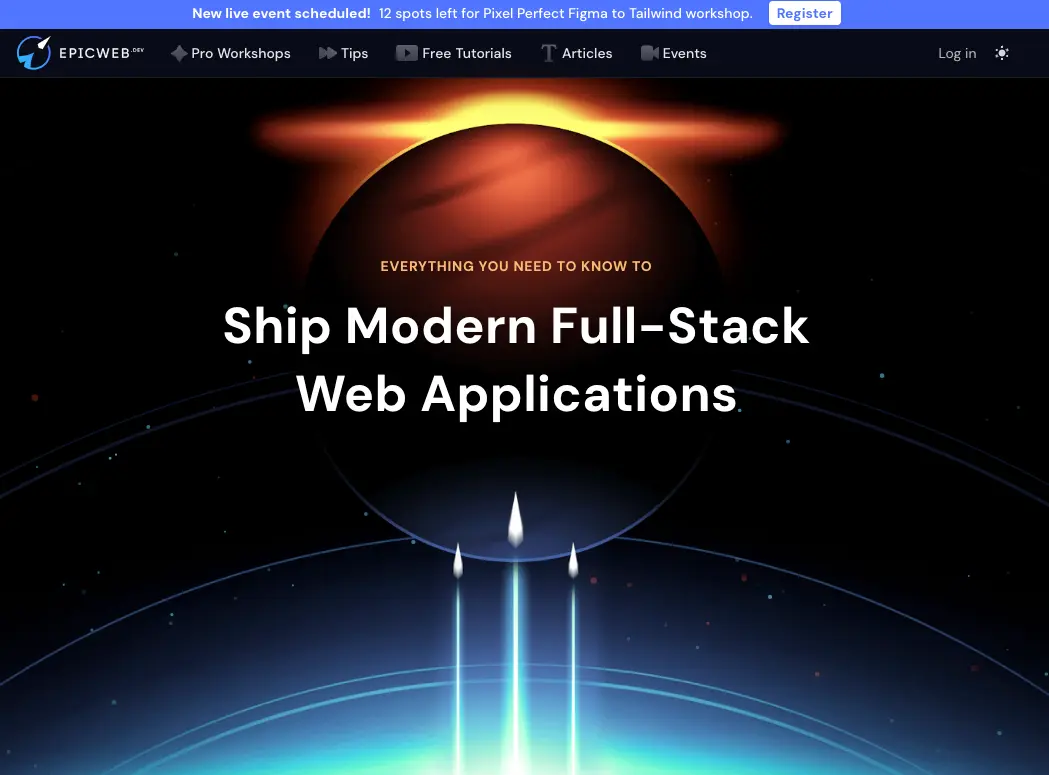

The Epic Web full-stack course is a comprehensive deep-dive into modern full-stack web development. It covers both frontend and backend technologies through building a complete web app from scratch.
The course is divided into five major workshop modules: Full Stack Foundations, Professional Web Forms, Data Modeling Deep Dive, Web Authentication, and Full Stack Testing. These modules provide hands-on training in areas like routing, data loading, input validation, data modeling, authentication, permissions, automated testing and more.
Each module contains multiple sections with coding exercises integrated into a specialized web app environment. This allows students to get practical experience implementing real-world requirements while following best practices.
The course aims to provide a solid foundation in full-stack skills needed to build secure, scalable and maintainable modern web applications efficiently. It covers vital aspects like security, error handling, database optimization and confident shipping of production code.
Price: $1,200
Tech: React, Remix, Prisma, SQLite, Playwright
Learn more at EpicWeb.dev

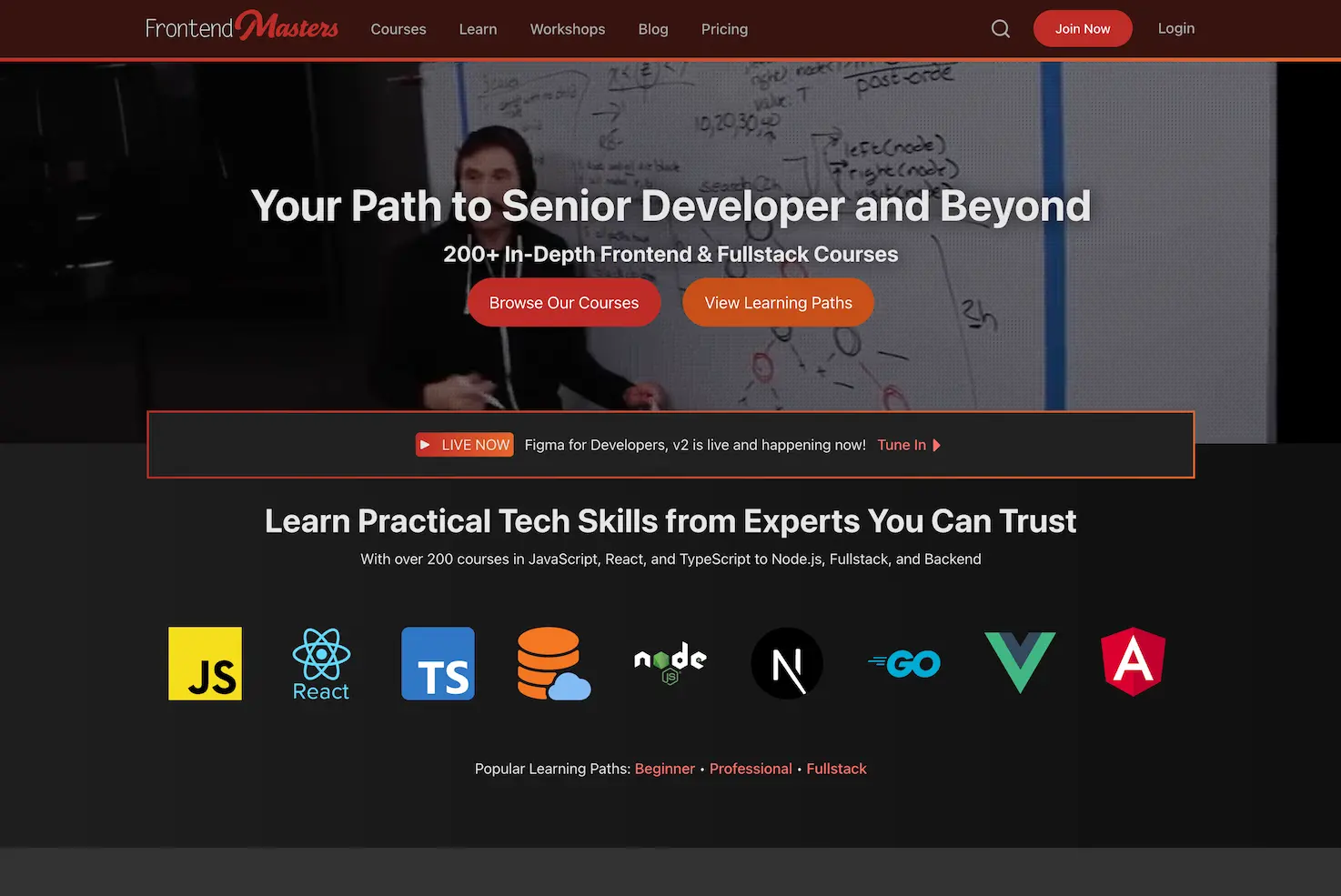

Frontend Masters offers a “Fullstack to Backend Learning Path” that aims to expand your skills from frontend development to backend and master the full stack. Here’s a summary:
The core coursework of this learning path guides you through the essential skills to become a full-stack developer. It starts with Jem Young’s “Full Stack for Front-End Engineers” course that teaches you to set up your own server and build web applications from scratch. Other key courses cover databases, Linux and the command line, using VIM, Node.js and building APIs, deploying to AWS, Docker containers, SQL and PostgreSQL, and an introduction to DevOps.
Additionally, there are elective courses that allow you to go further by learning Git in-depth, improving developer productivity, web authentication APIs, real-time applications, advanced Node.js concepts, Next.js, monorepos, Go, Java, and even Rust for TypeScript developers.
The learning path provides a comprehensive curriculum to transition from a frontend developer to a versatile full-stack engineer proficient in both client and server-side development.
Price: $390/year (includes access to all Frontend Masters courses)
Tech: Node.js, PostgreSQL, Docker, AWS, VIM
Learn more at Frontend Masters

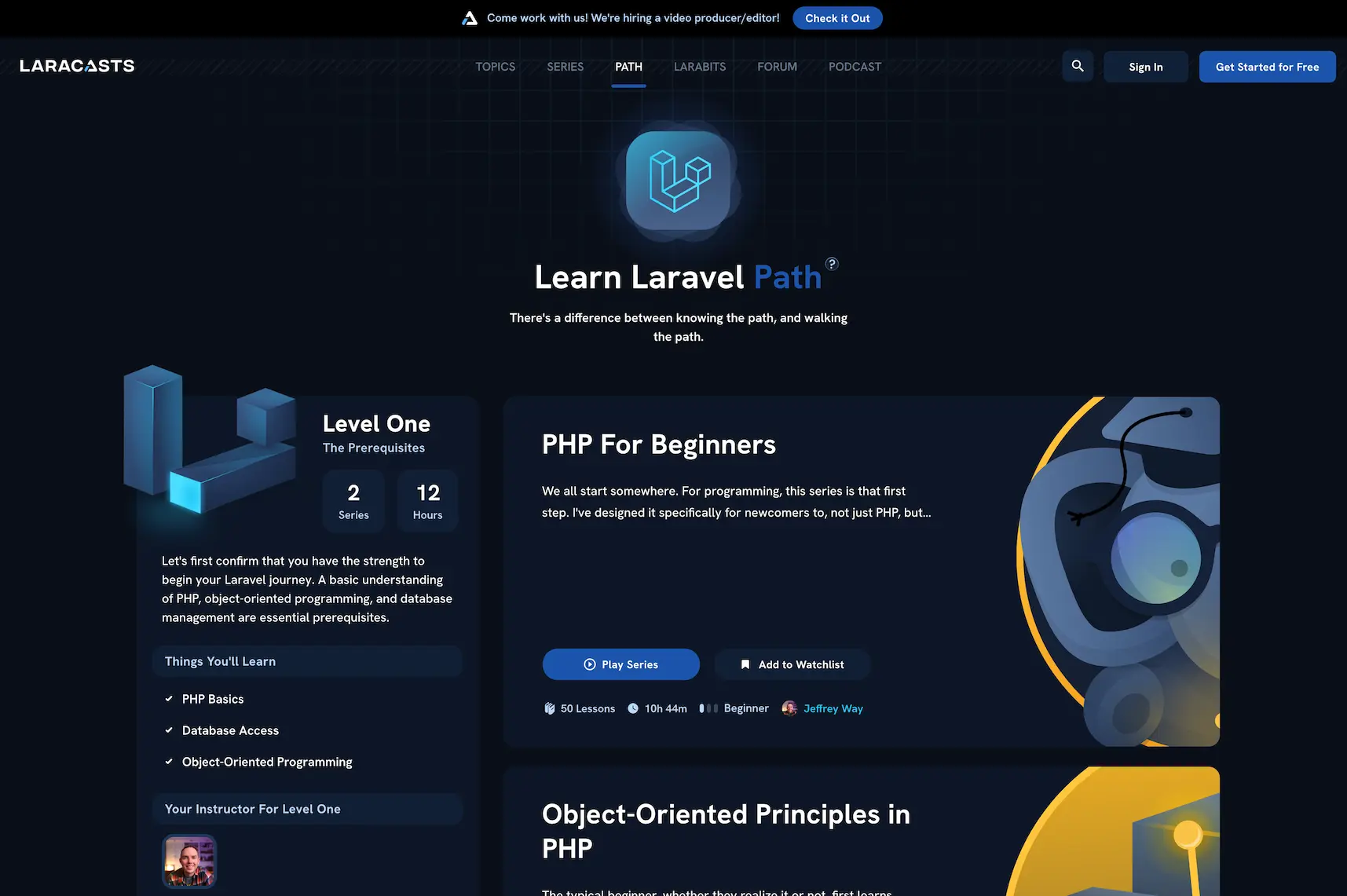

The Laracasts “Learn Laravel Path” provides a structured learning journey to become a full-stack web developer using the Laravel PHP framework. Here’s a summary:
The path is divided into four levels that progressively build your skills. Level 1 covers the prerequisites of PHP basics, database access, and object-oriented programming. Level 2 introduces you to the core Laravel framework, database design, testing, and deployment.
In Level 3, you expand into the frontend side, learning JavaScript basics, Vue.js for building single-page applications, and using Inertia.js to integrate Laravel with modern frontend frameworks.
Finally, Level 4 dives deeper into Laravel mastery with courses on security, database performance optimization, multi-tenancy, queues, and various coding workshops.
Each level comprises multiple video series covering theoretical concepts and hands-on exercises to reinforce the learning. The path aims to equip you with comprehensive full-stack skills for building robust, high-performance web applications using Laravel.
Price: $399 “Forever Plan” or $19/month subscription (includes access to all Laracast courses)
Tech: PHP, Laravel, Vue.js, Inertia.js
Learn more at Laracast

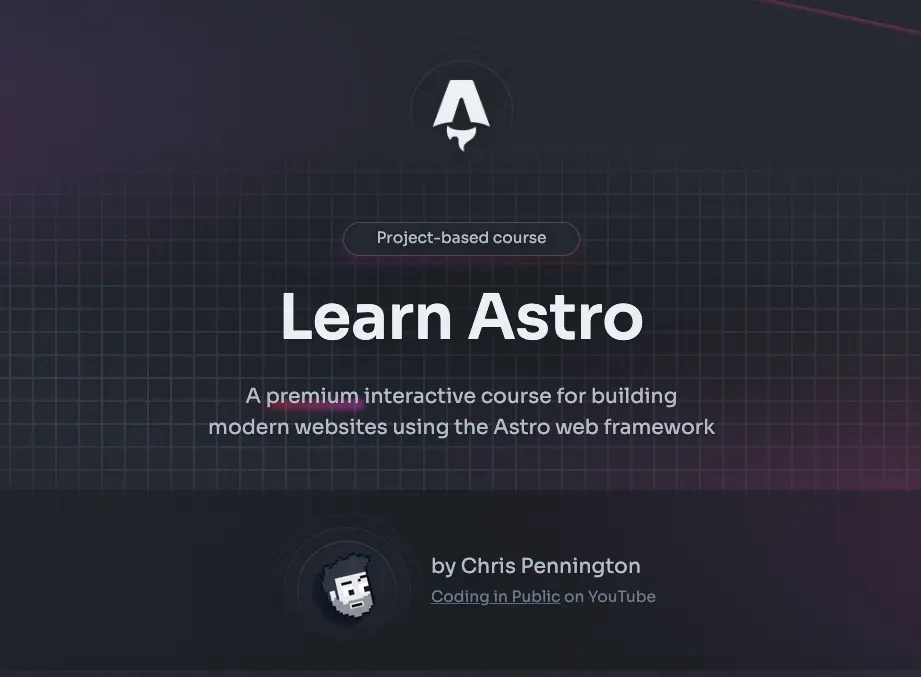

The “Learn Astro” course by Chris Pennington is a project-based, interactive course aimed at teaching how to build modern websites using the Astro web framework.
The first few modules of the course cover the core concepts of Astro such as file structure, routing, components, working with Markdown/MDX, content collections, rendering options, image optimization, and more.
It then dives deeper into Astro’s tooling like dynamic endpoints, Astro DB, middleware, view transitions, internationalization, and integrations. The course aims to provide hands-on learning through building projects like a personal portfolio site, CMS integration, backend services integration, and a full-stack application with complex CRUD operations. It is currently still in early access with new content being added regularly.
Price: $85
Tech: Astro, Markdown, MDX, SQLite
Learn more at Learn Astro

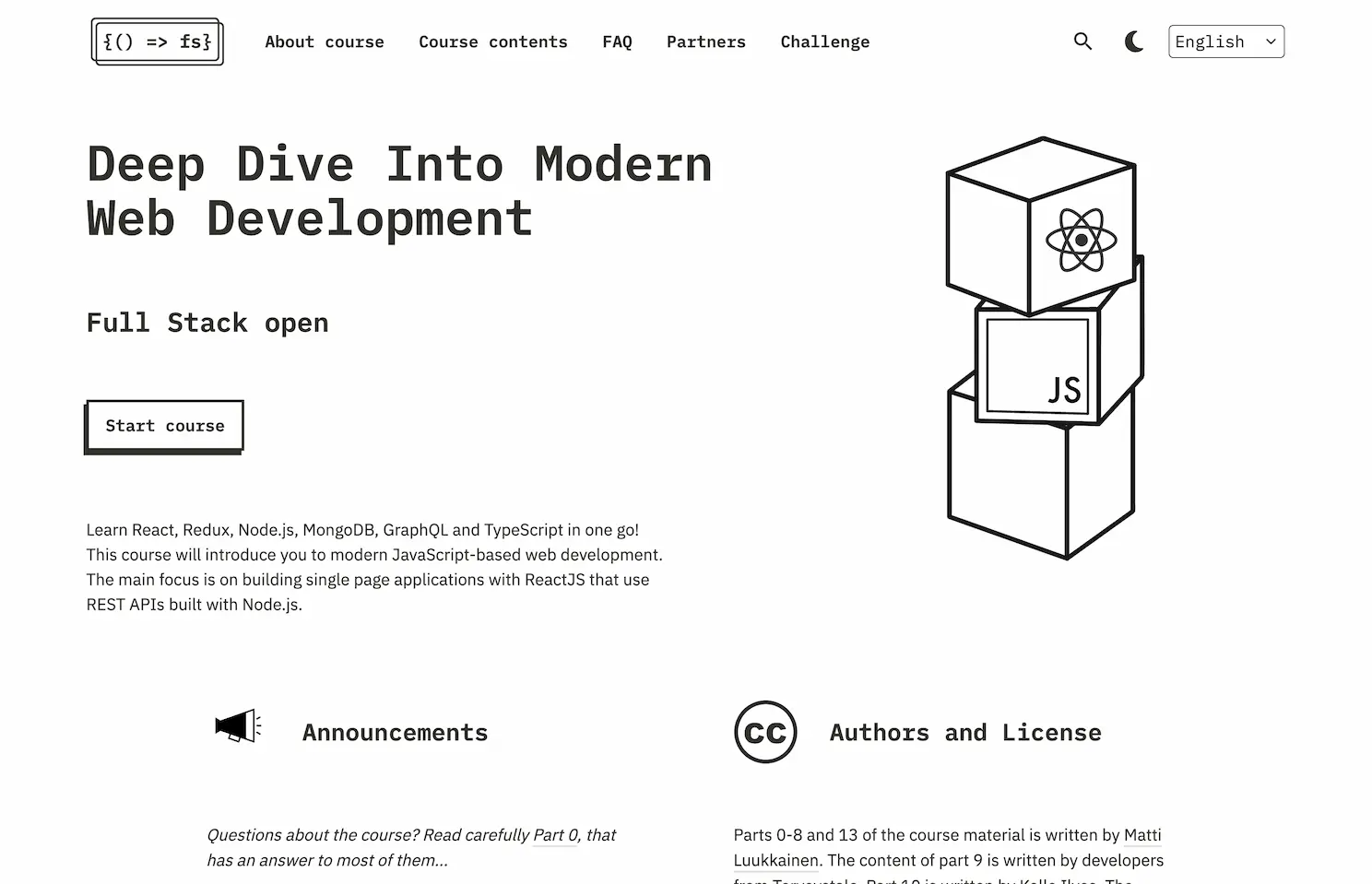

Full Stack Open is a comprehensive course that teaches modern JavaScript-based web development for becoming a full stack engineer.
It covers a wide range of topics including React for building single page applications, Redux for state management, Node.js and Express for creating REST APIs, MongoDB for databases, GraphQL, TypeScript, React Native for mobile app development, CI/CD, containerization, and using relational databases.
The course takes a hands-on approach, guiding students through the entire stack from front-end React to back-end Node.js/Express to databases and deployment.
Key concepts like state management, testing, routing, styling, and modern web development techniques are covered in-depth. The material is provided by instructors from the University of Helsinki and various industry partners under an open source license.
Price: Free
Tech: React, Express, TypeScript, Webpack
Learn more at Full Stack Open

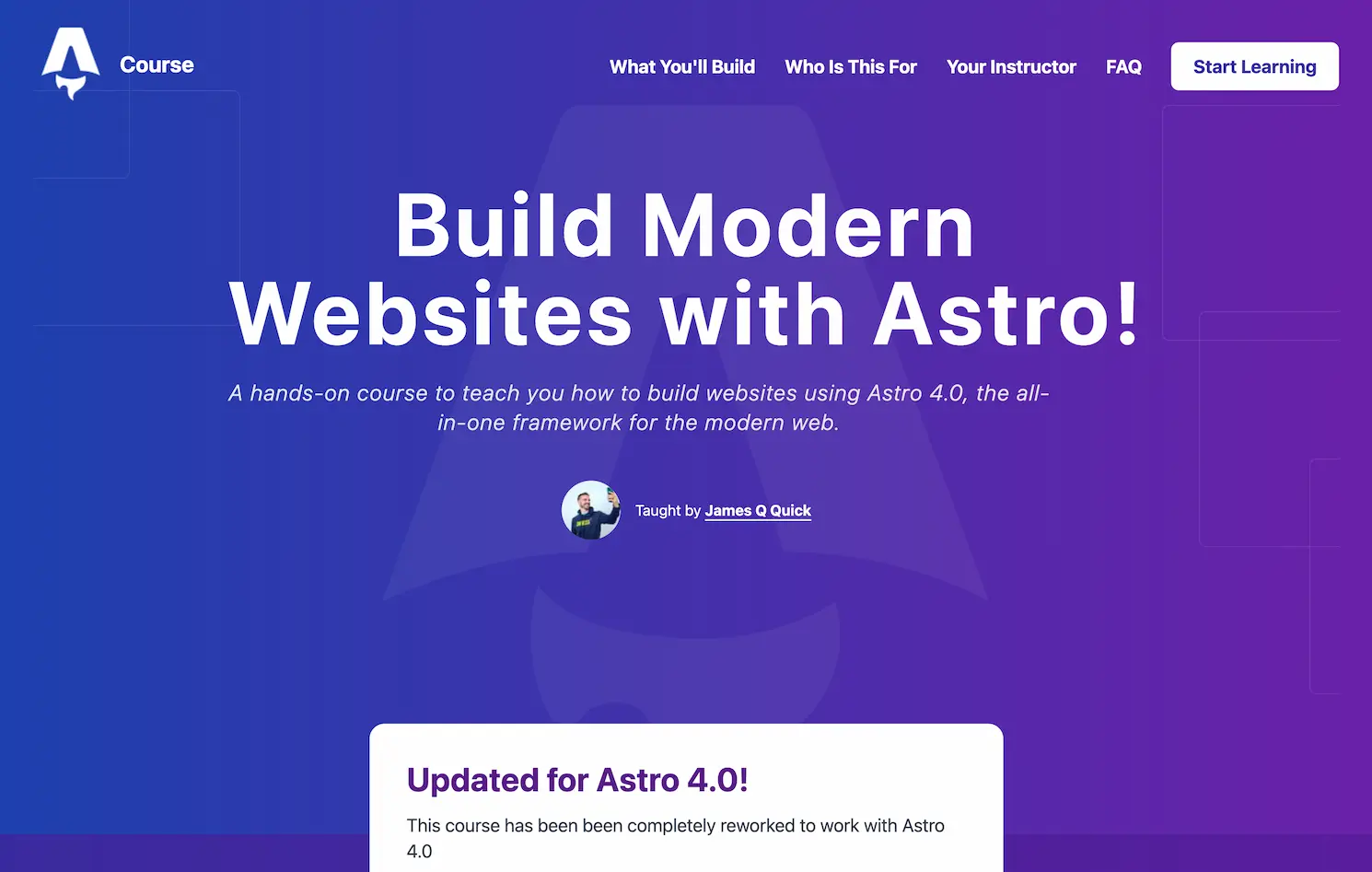

In this course by James Q Quick, students will learn core Astro concepts like static site generation, server-side rendering, content collections, Astro islands, image optimization, integrations, and more by building a full-stack Markdown blog project.
The project covers advanced features like tags, pagination, authentication, comments, and utilizes modern tech like Tailwind CSS, TypeScript, Xata, and Cloudinary for images.
Key topics covered include static vs server rendering, content collections, image optimization, TypeScript integration, authentication, API routes, pagination, working with Markdown, SEO, RSS feeds, and deployment/hosting.
The course includes over 40 in-depth lessons with 5+ hours of video content. It is suitable for beginner to intermediate developers with fundamental HTML, CSS, JavaScript knowledge and some prior framework experience. The course also includes access to a private Discord server for questions and support.
Price: $150 for the full-stack package, or $75 for the “half-stack” package
Tech: Astro, TypeScript, Tailwind CSS, Zod
Learn more at Astro Course

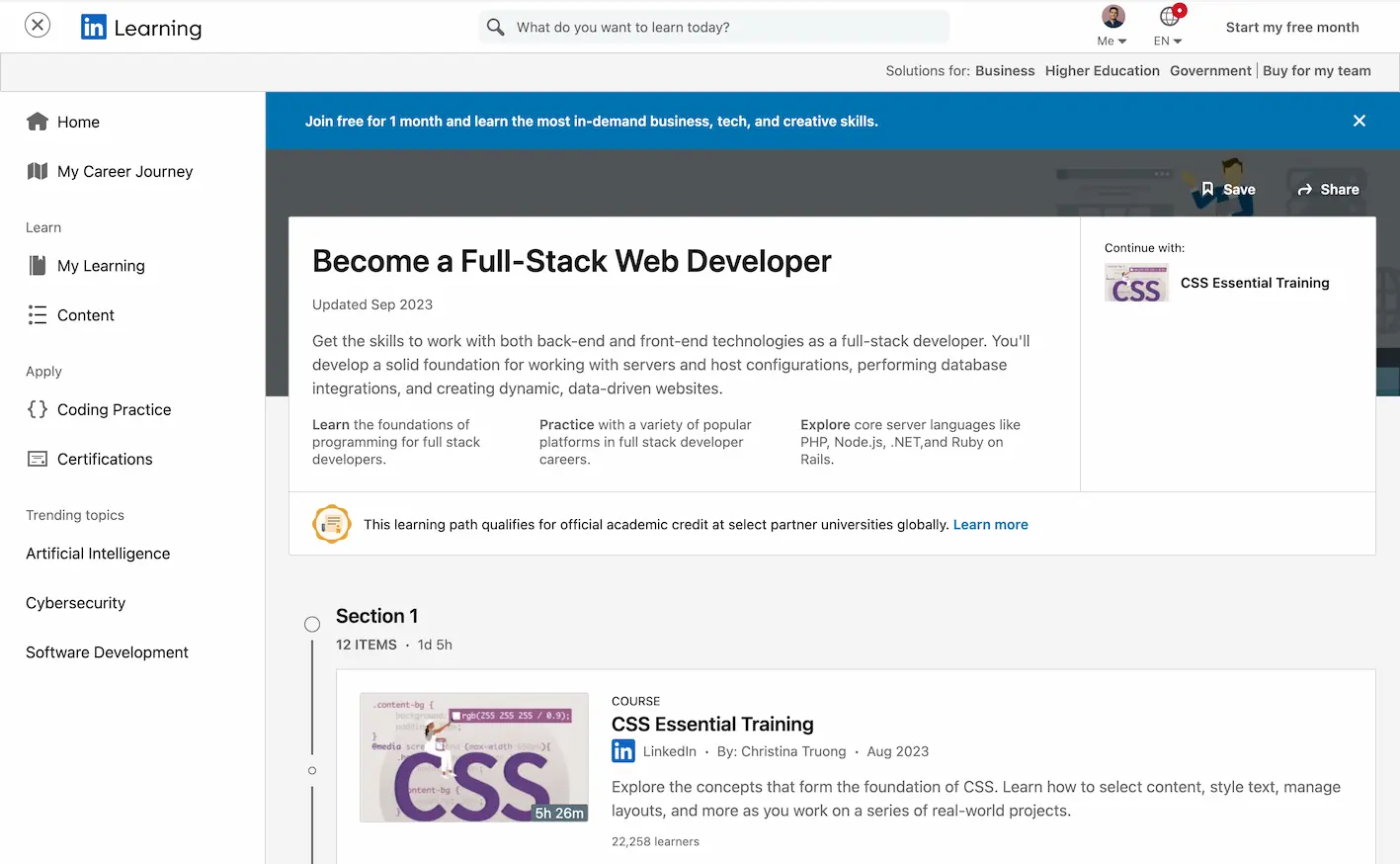

The “Become a Full-Stack Web Developer” learning path on LinkedIn Learning aims to provide the skills needed to work as a full-stack developer, proficient in both back-end and front-end technologies
This comprehensive path covers the foundations of programming for full-stack developers through 12 courses totaling over 29 hours of content.
Students will learn HTML, CSS, JavaScript, Git, React, Node.js, SQL databases, NoSQL databases, REST APIs, and DevOps principles. The curriculum is designed to provide a solid grounding in server technologies, database integration, dynamic data-driven websites, as well as popular platforms and languages used in full-stack developer careers. Learners will also earn a certificate of completion once they finish the course.
Price: The cost of LinkedIn Premium, starting at $39.99/month
Tech: React, Node.js, vanila JavaScript and CSS, SQL, NoSQL
Learn more at Astro Course

Well, there's only one way to find out!
Join 6,500+ developers getting the latest insights from the world of software design and architecture—tailored specifically to frontend engineers. Delivered right to your inbox every two weeks.
“Maxi's newsletter is a treasure trove of wisdom for software engineers with a growth mindset. Packed with valuable insights on software design and curated resources that keep you at the forefront of the industry, it's simply a must-read. Elevate your game, one issue at a time.”
